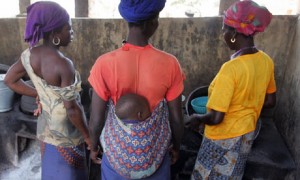
The Guardian | Friday 18 June 2010
Emerging markets could keep continent in traditional model of exporting resources
Katie Allen
African governments must take a tougher stance in trade negotiations with emerging markets such as China and India to ensure these new partnerships do not replicate the old low-value-added model of commodity exports, a United Nations report has warned.
The UN Conference on Trade and Development (Unctad) said that so far trade and investment deals with partners in the south are merely reinforcing a long-standing trend with the north in which African countries export farm produce, minerals, ores, and crude oil, and import manufactured goods.
Trade between Africa and developing nations has picked up rapidly in recent years as expanding economies draw on the continent's resources. Africa's total goods trade with non-African developing countries almost trebled to $283bn in 2008 from $97bn in 2004, the report said. But it offered some optimism that the "south-south" relationship between Africa and other developing countries was still young enough to change.
"This situation should be reversed while the south-south trend is still in its early stages. A repeat of the traditional pattern will not help African countries to reduce their traditional dependence on exports of commodities and low-value-added goods," it said.
It urges African countries to be more assertive in its negotiating to get more balanced deals and secure the kind of infrastructure funding as well as knowledge-sharing that can help them eventually move toward producing a greater variety of goods, and more sophisticated goods.
"The main challenge facing African countries is how to harness and use these partnerships more effectively to further their long-term development goals. Addressing this challenge requires that African countries be more proactive in the partnership process and use the leverage they have with developing country partners to persuade them to strike a balance between their strategic interests and Africa's development needs," the report says.
Unctad's recommendations follow a report earlier this week predicting food prices are set to rise as much as 40% over the coming decade amid growing demand from emerging markets and for biofuel production. Fairtrade campaigners warned that the forecasts from Paris-based thinktank the OECD and the UN Food and Agriculture Organisation (FAO) could spell more land-grabbing in African nations.
As prices for produce such as wheat and cocoa have soared in recent years and scarce water supplies have hit harvests around the world there has been a rush for African farmland. The frenzy has seen the equivalent of Italy's entire arable land mass bought up by businesses from emerging economies.
The Fairtrade Foundation welcomed the report's pressure for more focus on what Africa can get out of trade.
A spokesman said: "As the world scrambles to extract resources from Africa, there is a real danger, as this report shows, that the financial benefits from this new race for Africa will fail to catalyse meaningful growth for small businesses and everyday people. Increased trade of metals, oil and other commodities between Africa and emerging economies as well as the developed world must carry with it mechanisms that allow Africa to build a diversified economy so prosperity levels can rise at a time when the economic crisis has led to increased poverty and hunger."











